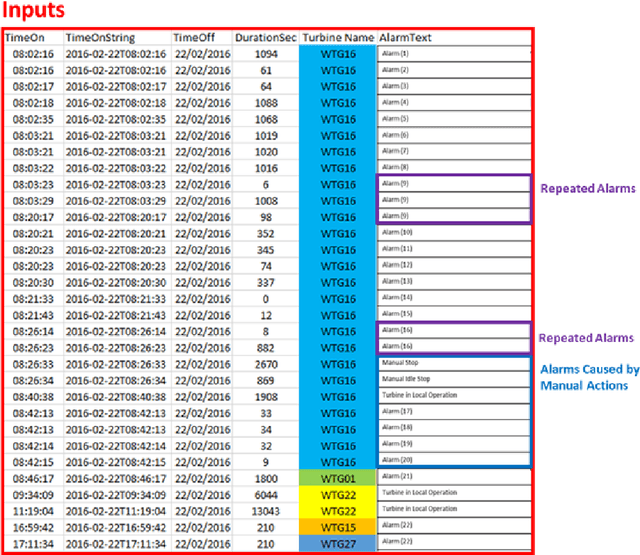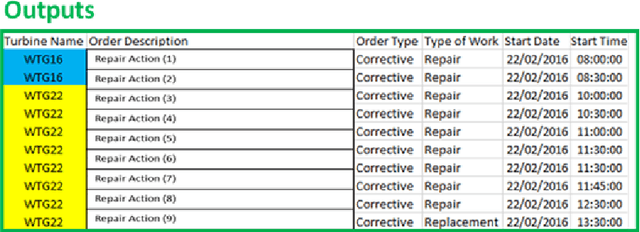Connor Walker
RAGuard: A Novel Approach for in-context Safe Retrieval Augmented Generation for LLMs
Sep 03, 2025Abstract:Accuracy and safety are paramount in Offshore Wind (OSW) maintenance, yet conventional Large Language Models (LLMs) often fail when confronted with highly specialised or unexpected scenarios. We introduce RAGuard, an enhanced Retrieval-Augmented Generation (RAG) framework that explicitly integrates safety-critical documents alongside technical manuals.By issuing parallel queries to two indices and allocating separate retrieval budgets for knowledge and safety, RAGuard guarantees both technical depth and safety coverage. We further develop a SafetyClamp extension that fetches a larger candidate pool, "hard-clamping" exact slot guarantees to safety. We evaluate across sparse (BM25), dense (Dense Passage Retrieval) and hybrid retrieval paradigms, measuring Technical Recall@K and Safety Recall@K. Both proposed extensions of RAG show an increase in Safety Recall@K from almost 0\% in RAG to more than 50\% in RAGuard, while maintaining Technical Recall above 60\%. These results demonstrate that RAGuard and SafetyClamp have the potential to establish a new standard for integrating safety assurance into LLM-powered decision support in critical maintenance contexts.
SafeLLM: Domain-Specific Safety Monitoring for Large Language Models: A Case Study of Offshore Wind Maintenance
Oct 06, 2024



Abstract:The Offshore Wind (OSW) industry is experiencing significant expansion, resulting in increased Operations \& Maintenance (O\&M) costs. Intelligent alarm systems offer the prospect of swift detection of component failures and process anomalies, enabling timely and precise interventions that could yield reductions in resource expenditure, as well as scheduled and unscheduled downtime. This paper introduces an innovative approach to tackle this challenge by capitalising on Large Language Models (LLMs). We present a specialised conversational agent that incorporates statistical techniques to calculate distances between sentences for the detection and filtering of hallucinations and unsafe output. This potentially enables improved interpretation of alarm sequences and the generation of safer repair action recommendations by the agent. Preliminary findings are presented with the approach applied to ChatGPT-4 generated test sentences. The limitation of using ChatGPT-4 and the potential for enhancement of this agent through re-training with specialised OSW datasets are discussed.
A Deep Learning Framework for Wind Turbine Repair Action Prediction Using Alarm Sequences and Long Short Term Memory Algorithms
Jul 19, 2022



Abstract:With an increasing emphasis on driving down the costs of Operations and Maintenance (O$\&$M) in the Offshore Wind (OSW) sector, comes the requirement to explore new methodology and applications of Deep Learning (DL) to the domain. Condition-based monitoring (CBM) has been at the forefront of recent research developing alarm-based systems and data-driven decision making. This paper provides a brief insight into the research being conducted in this area, with a specific focus on alarm sequence modelling and the associated challenges faced in its implementation. The paper proposes a novel idea to predict a set of relevant repair actions from an input sequence of alarm sequences, comparing Long Short-term Memory (LSTM) and Bidirectional LSTM (biLSTM) models. Achieving training accuracy results of up to 80.23$\%$, and test accuracy results of up to 76.01$\%$ with biLSTM gives a strong indication to the potential benefits of the proposed approach that can be furthered in future research. The paper introduces a framework that integrates the proposed approach into O$\&$M procedures and discusses the potential benefits which include the reduction of a confusing plethora of alarms, as well as unnecessary vessel transfers to the turbines for fault diagnosis and correction.
 Add to Chrome
Add to Chrome Add to Firefox
Add to Firefox Add to Edge
Add to Edge